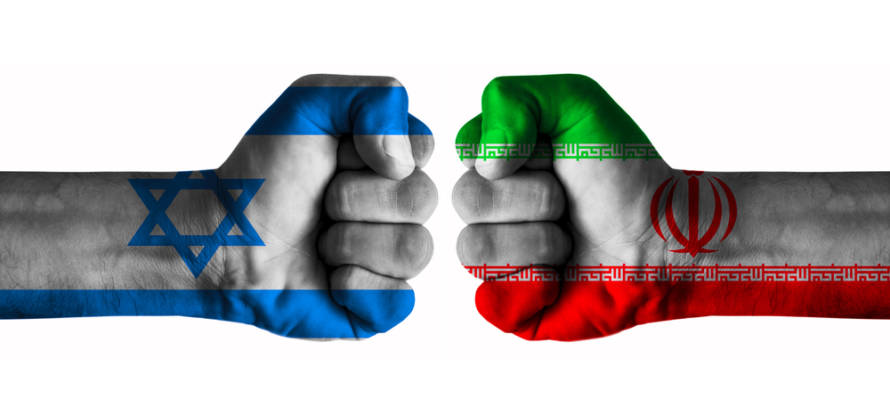Iran’s Islamist regime has recently experienced a string of serious setbacks, most of them directly or indirectly connected to Israel.
By Daniel Krygier, United with Israel
On April 30, Prime Minister Benjamin Netanyahu unmasked the ayatollah regime by displaying some of the more than 100,000 documents that Mossad had stolen from Iran’s secret nuclear archive in Tehran.
US President Donald Trump explicitly referred to Israel and Netanyahu when he announced a week later that the United States was pulling out of the Iran nuclear deal. This was a major blow to Iran, and its weak economy is now facing the prospect of severe American sanctions.
On May 10, Israel responded to Iranian rocket attacks by seriously decimating Iran’s military assets in Syria. It was reportedly Israel’s most extensive military operation in Syria since the Yom Kippur War in 1973.
Apparently as a result of Netanyahu’s many productive meetings with Russia’s President Vladimir Putin, the Kremlin announced that it would cancel the scheduled delivery of its advanced S-300 anti-missile system to Iran’s ally, Syria.
Until recently, Russia had refused to take sides in the military confrontation between Tehran and Jerusalem. However, it appears that Moscow has finally realized that Iran’s anti-Israel military buildup in Syria threatens Russia’s main interest in the country – the stability of the Assad regime safeguarding Russia’s military naval base in the Syrian city of Tartus.
As a result, Moscow is now pressuring Tehran to end its aggression against Israel, since Syria’s stability is endangered by Israel’s powerful military responses. In a veiled warning to Iran, Russian Foreign Minister Sergey Lavrov stressed that only Syrian troops should have a presence along the Syrian-Israeli border.
Meanwhile, the US State Department has warned Assad not to advance southward to the Israeli border.
In Iraq, a political bloc led by Muqtada al-Sadr emerged as the winner in the country’s recent parliamentary election. The unexpected victory comes after al-Sadr was sidelined for years by Iranian-backed rivals who only came in second in the election.
Iran’s Islamist proxies also failed to prevent the transfer of the American embassy from Tel Aviv to Israel’s capital, Jerusalem.
With the exception of Turkey recalling its ambassadors in Israel and Washington, Hamas’s “March of Return” was a failure. Hamas did not succeed to penetrate Israel’s border; not a single Israeli was killed.
Encouraged by Iran, Hamas and Islamic Jihad fired over 100 rockets against Israeli border communities adjacent to Gaza. In response, the Israeli Air Force decimated Hamas military targets throughout the Gaza Strip.
Hamas is clearly not interested in further military escalation with Israel, which would undermine its rule in Gaza. The terrorist organization, therefore, is likely seeking to rein in the even-more-radical terrorist group Islamic Jihad.
While Iran has experienced serious setbacks during the past weeks, Israel has dramatically strengthened its military and intelligence deterrence against Tehran and its Islamist proxies.
